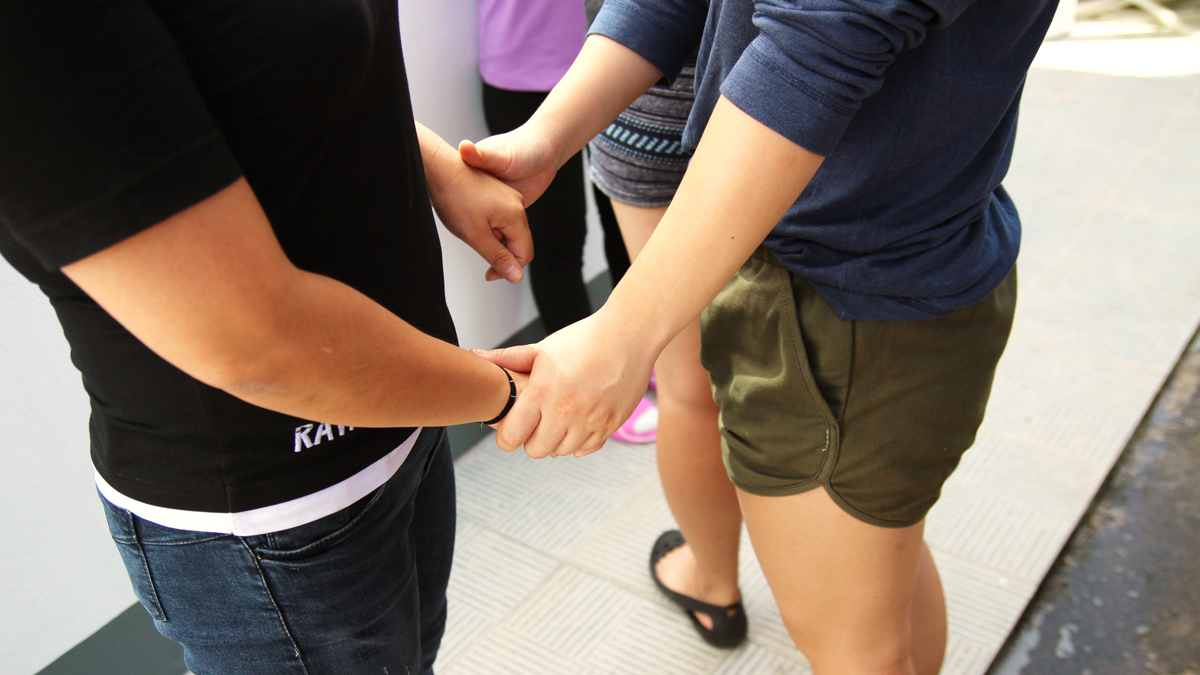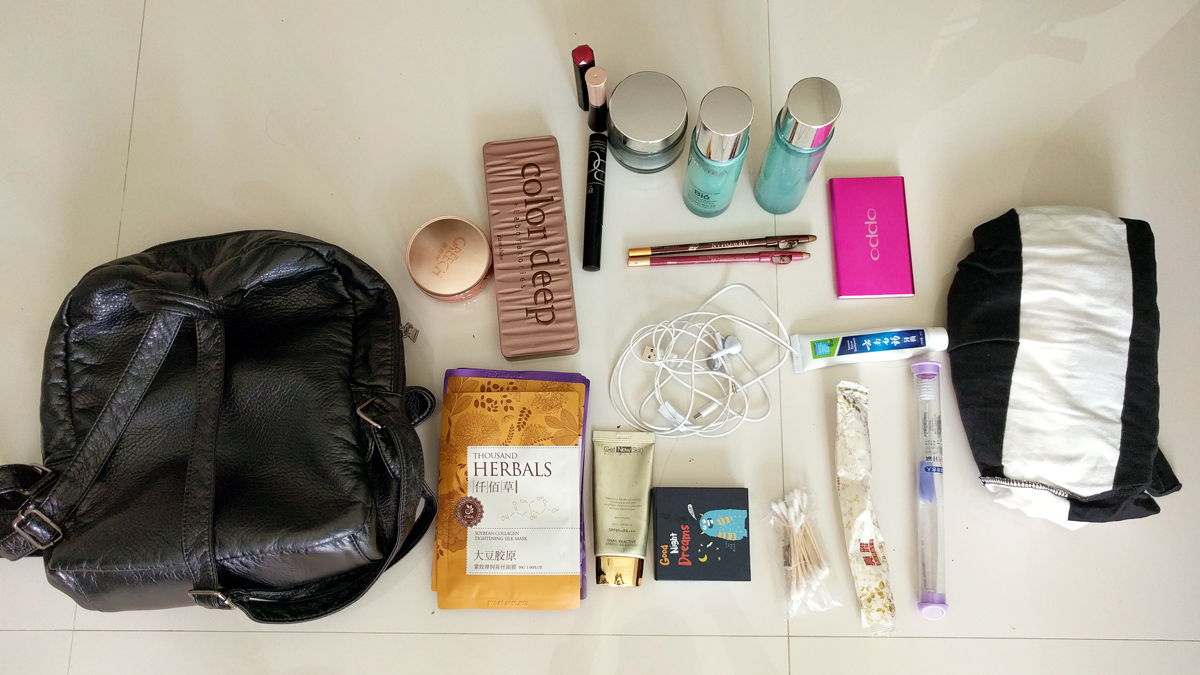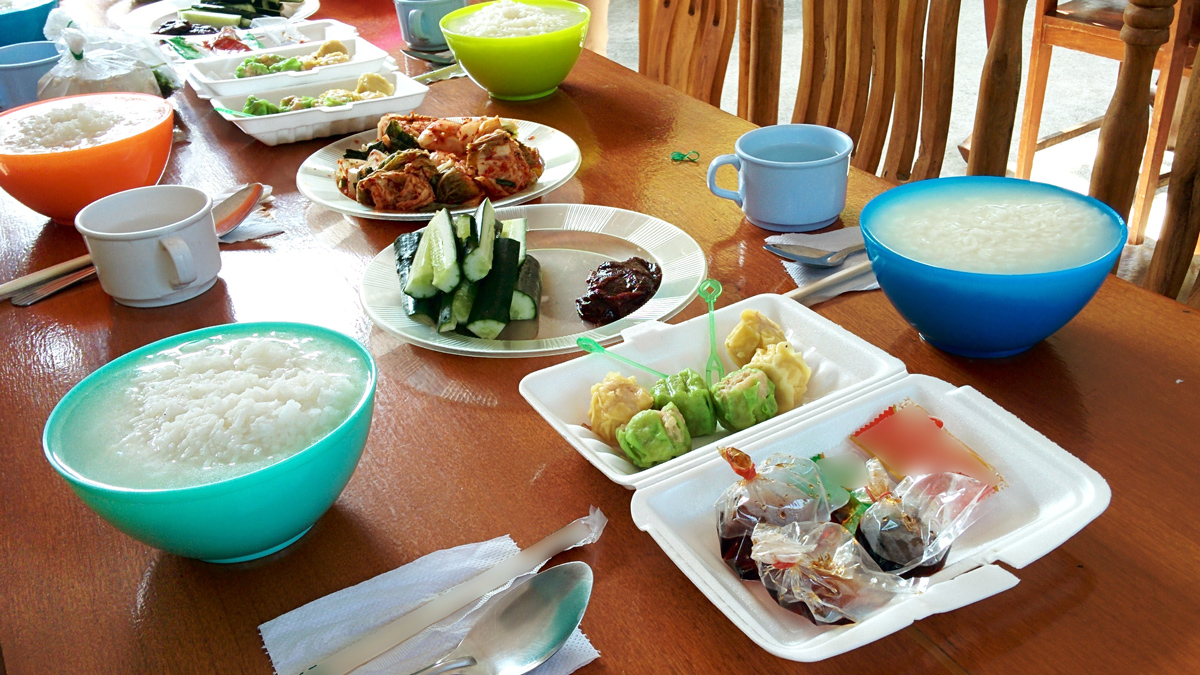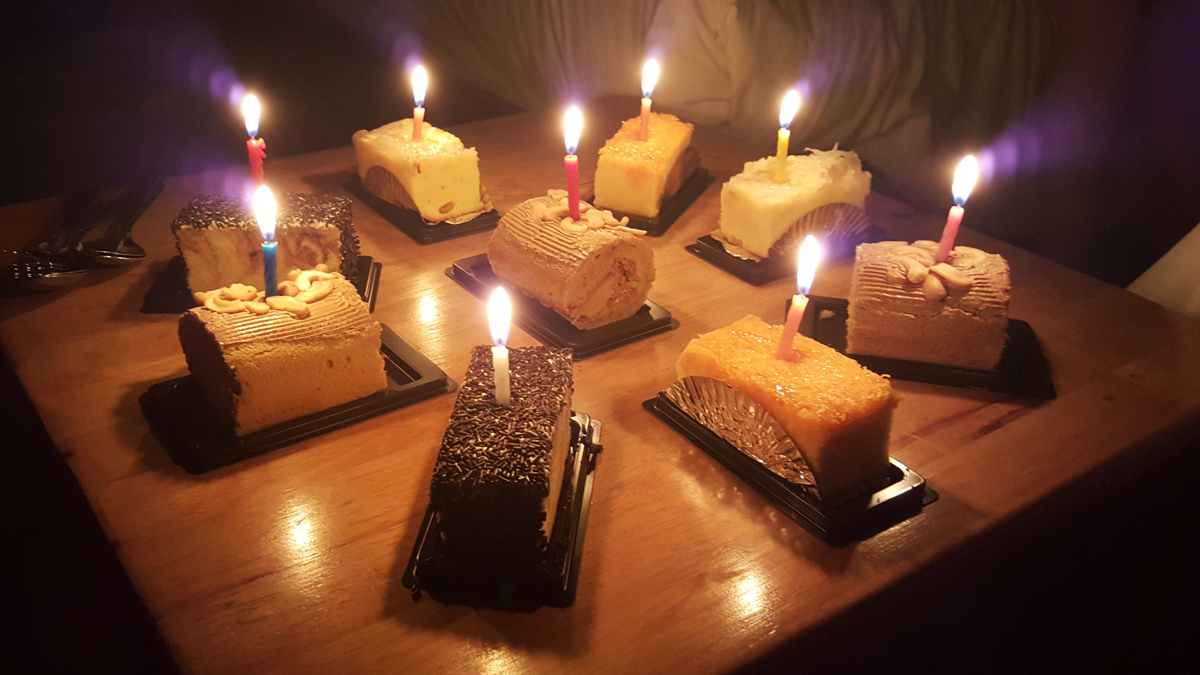Time Travelers: North Korean Defectors Resettling in South Korea
To reach freedom, North Korean defectors typically brave a perilous 3,000 mile journey through China and Southeast Asia. But even after finally reaching safety, they face a long road ahead as they begin their new lives.
The majority of North Korean refugees have resettled in South Korea. Many describe the transition like stepping out of a time machine, 50 years into the future. In addition to learning about things like the internet and ATMs, getting used to their newfound freedom alone can be a lot to grasp after decades of living in the world’s most authoritarian country.
A new journey, one of restoration, discovery, and adjustment, begins.

Resettlement Process
When North Korean refugees first reach South Korea, they go through a thorough debrief process with the National Intelligence Service to verify their background. From there, the Hanawon Settlement Support Center helps them ease into modern South Korean society.
Every defector must complete a three month adjustment program, which covers:
- Basic skills, like how to open a bank account and use the Internet
- Job and vocational training
- Field trips to shops, food courts, and other businesses
- The social and cultural differences between North and South Korea
- The history of the Korean peninsula
After completing the program, refugees receive government benefits to begin their new lives, including an initial subsidy, housing support, and healthcare.

South Korean Culture Shock
Emerging from Hanawon, North Korean refugees often experience culture shock when they find themselves fully immersed in South Korean society.
One of the first things many notice is the abundance of greenery and trees compared to North Korea. While the entire Korean peninsula was severely deforested by the mid-20th century, South Korea is one of the world’s few reforestation success stories.
Many defectors are also surprised by how safe South Korea is. One person can manage a big market stall on their own and not worry about theft, whereas goods have to be closely guarded at North Korea’s Jangmadangs. Other new experiences include the widespread availability of clothing and existence of vending machines and mannequins.
.jpg)
New Challenges
While the South Korean government provides material support, many North Korean refugees still face challenges starting over in a very different society. Just navigating daily life can be difficult at first, and making longer-term decisions like what to study or finding a stable job can be even more overwhelming.
“When I first arrived in South Korea, I was confused and didn’t know where to even start my new life in freedom. I wasn’t even sure who I was as a person.”
– Geumju, escaped North Korea in 2008

At school, additional study may be needed to catch up with their South Korean peers after decades of propaganda-based learning. In the workforce, many refugees have to retrain and re-qualify for the same jobs they had in the North, such as doctors and teachers. These discrepancies have contributed to an income gap between North and South Koreans in South Korea’s hyper competitive society.
In addition to figuring out the future, many refugees are still coping with physical and mental health issues from a traumatic past. A lack of healthcare in North Korea often results in decades of unaddressed medical and dental problems. Roughly 50% of North Korean refugees also suffer from PTSD. Many had to leave loved ones behind, witnessed or experienced torture, or survived trafficking, which can be tough to process.

Finding Community & Onward
Forming new relationships in South Korea can be one of the biggest challenges for defectors. In North Korea, lack of mobility and aspects of life organized by the regime meant that everyone in a neighborhood knew each other. To meet up with someone, it was commonplace to just stop by their home. In comparison, South Korea’s decentralized “yaksok” (promise) culture of scheduling a time and place to meet specific people may feel unfamiliar and take extra effort.
Refugees may also not want to reveal that they’re from North Korea or can have trouble sharing past experiences. Some may also experience prejudice against North Koreans for their accent or stereotypes, such as being uneducated or untrustworthy.
Overall, although life in freedom brings many advantages and benefits, it comes with some unexpected challenges. Before their escape, North Koreans may have only heard good things or focused on the positives. Moving to a foreign place and building a new life from scratch is difficult for anyone, and can be especially challenging for North Korean refugees.
Impact of the Pandemic
During the pandemic, refugee numbers have been at an all time low. Unprecedented restrictions on movement and surveillance have made the journey through China and Southeast Asia almost impossible.

On the resettlement side, refugees have also struggled as some support programs were scaled back or cut altogether. Many have felt especially lonely during this time or found it difficult to work towards their goals.
Agents of Change
Despite all odds, North Korean refugees are some of the most powerful examples of human resilience. When they have the support they need to successfully resettle in freedom, they can become some of the most effective agents of change on this issue.

Defectors are embracing and taking pride in their identity, sharing their stories on the global stage as YouTubers, entrepreneurs, and advocates. When they reclaim the narrative on North Koreans, they directly challenge the regime’s portrayal of their country.
North Korean refugees also have the unique opportunity to affect change inside North Korea through remittances. Many maintain contact with their home communities and send money back to their families, helping people inside and accelerating change at the ground level.
The Support of a Movement
Reaching freedom is just the first step. LiNK is dedicated to working with North Korean refugees to help build their capacity and realize their full potential in their new lives! We do this by:
- Organizing workshops for entrepreneurship, advocacy, and more
- Facilitating a 1:1 English tutoring program
- Sponsoring scholarships for North Korean students pursuing higher education
- Providing a community of ongoing support and resources

“I’m touched by LiNK’s supporters. I can feel their genuine heart. Before I learned more about LiNK, I just thought that I came out through a rescue network. I never imagined that so many people have been rooting for us and that it’s a bigger movement than just rescues. Now that I know all of you helped us with kind hearts, I want to succeed and do good things for others in South Korea.”
– Yuna, escaped through LiNK’s networks and resettled in 2021
We’re only able to provide this crucial support with your help. Donate today to keep these programs running.
Women’s History Month: Honoring the Bravery of North Korean Women
By: Jennifer Kim
Jennifer* is Liberty in North Korea’s Field Manager. Over the years, she’s carefully stewarded our secret rescue routes and helped countless North Korean refugees reach safety and freedom.
Approximately 70% of North Korean defectors are women. Throughout their journey, they face unimaginable challenges, including human trafficking, confinement, and sexual violence.
For Women’s History Month this year, we asked Jennifer to share her experiences supporting North Korean women who have made the brave decision to escape, and bring light to the stories of real people behind the numbers and statistics.

A Transformative First Mission
When I first began this line of work, I was filled with both excitement and anxiety. “Will I be able to connect well with these people?” “Will the field be too dangerous?” Even in my position as a staff member, there were times when the situations we encountered felt riskier because I was a woman.
On my first mission, the group we brought to safety were all women. From their small requests, like asking for sanitary pads, to moments where they cautiously shared their harrowing experiences of human trafficking in China, I found that we could connect on a deeper level because I was also a woman. I realized my role wasn’t just to be a staff member, but to stand by these people as they needed me, as a fellow woman. From then on, the fear I had initially felt about this work transformed into conviction.
North Korean Women At the Forefront of Resistance and Survival
After meeting many North Korean women defectors, I’ve come to learn that there are unique challenges and experiences that only they face. Women in North Korea are not as restricted to job assignments as men, so they’re the ones actively engaged in informal economic activities. They’re running their own black-market businesses and trading smuggled goods, shifting economic power from the regime into the hands of the ordinary people.
Women also make up the majority of North Korean defectors at over 70%. In freedom, they’re leading advocacy efforts and raising awareness for this issue.
I've come to think that perhaps women in North Korean society were the first and most desperate to stand up in resistance.

At the same time, the reality is that women are more vulnerable to gender violence and crime. The moment they cross the North Korean border and set foot on Chinese soil, their precarious legal status and the fact that they are women become risk factors that can lead to human trafficking, sexual exploitation, and forced prostitution. If these dangerous situations lead to pregnancy and childbirth, women often remain in China for years, even decades, weighed down by the conflicting emotions of their longing for freedom and their maternal instincts.
All of the women I met during my first rescue mission were survivors of being trafficked into forced marriages. While there are some cases where these women meet kind families and live in a relatively less dangerous environment, most have to endure difficult lives. One woman who we rescued in 2024 said that in the early stages of her life in China, she was confined and tied up in a single room by the man who bought her. Others had to do forced labor in one of China’s many factories.
Not a News Story, But a Person’s Story
About ten years ago, I watched a video of a woman my age testifying about the hardships and sexual violence she experienced during her defection from North Korea. As a South Korean, I couldn't believe that such things were happening just across the border. Shocked and ashamed of my indifference, I cried for a long time, then resolved to do something.
North Korea used to be something I only saw and heard about through a TV screen. Now those distant news stories have become the personal experiences of the North Korean mothers and friends I’ve met in the field.
At first, I simply wanted to help as best I could. But as time went on and I met more North Koreans, my perspective gradually changed. Now, I feel like I'm not so much ‘helping’ as I am meeting incredible superwomen who have overcome tremendous adversity.
My role is to constantly remind them of their resilience and potential, so they don't forget it themselves.

“This is My First Time Being Treated Like a Queen”
After a successful mission, our team ensures our newly arrived North Korean friends have a proper meal, get some rest, and receive basic necessities. On one occasion, one woman told me, “This is the first time in my life that I have been treated like a queen.”
She had just reached freedom after ten years in a forced marriage to a Chinese man. Her words resonated with me deeply. I realized once again that our work isn't simply about helping people achieve physical freedom; it's about restoring a person's forgotten dignity.
That woman has since resettled in South Korea and runs a small shop. She’s continued to stay in contact with LiNK, sharing updates about her life. One day, she shyly announced her marriage. She’s starting a new chapter with a person she chose and wanted.

Walking Together In Solidarity
Through the friendships I’ve made and stories I’ve witnessed in the field, my connection to this issue has deepened over time. These women aren’t just “nameless” North Koreans, but people like us, living their daily lives; someone’s daughter, sister, or mother. I didn’t set out to do this work for over a decade. But day by day, hearing each story, meeting each person, and holding their hands has naturally led me down this path.
Listen to their stories, and I believe that you too will encounter a heart for the North Korean people.
– Jennifer Kim, LiNK Field Manager
*Jennifer is a pseudonym used to protect our field manager’s identity and avoid compromising this work.

Help North Koreans Win Their Freedom
From inside the country to on the global stage, North Korean women are driving change on this issue. Driven by necessity, desire to care for their loved ones, and aspirations to forge their own path in this world, their pursuit of freedom is both intentional and instinctive.
Liberty in North Korea doesn't just extend a helping hand to North Korean refugees—we’re cultivating the next generation of North Korean leaders, entrepreneurs, and advocates, and doing this work alongside them.
Become a monthly donor today at $20 per month to help more North Koreans reach safety and gain full authorship of their lives in freedom.




